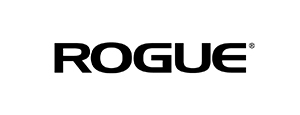Interview: Morghan King – YOG Athlete Role Model
The International Olympic Committee, along with the International Weightlifting Federation, appointed Morghan King and Oscar Albeiro Figueroa Mosquera as Athlete Role Models at the 2018 Youth Olympic Games in Buenos Aires, Argentina. So, how is Morghan feeling about her new role? [caption id="attachment_23874" align="aligncenter" width="700"] Morghan King at Rio2016 (USA Today Sports)[/caption] What will your role as YOG ambassador entail? My overall mission is to support and inspire our young athletes. Weightlifting is an incredible sport – it’s an incredible feat of human physical ability. So, I’m going to do my best to promote weightlifting on one of the biggest stages. What advice would you give to those competing at YOG? One thing Melanie Roach (USA Olympian 53kg) said to me after the 2008 Olympic Games was to make sure you enjoy it, because it goes by so fast. For weightlifters specifically – appreciate the moment of walking out onto the platform. Try to take in everything, including everyone who’s there to support you. If you remember your training and keep calm, you’ll do great things. Have you had any experience of the Youth Olympic Games before? I haven’t. I only started weightlifting at the end of 2012! However, I’ve spoken to athletes who competed at the last Youth Olympic Games in Nanjing and they said they had the most amazing time. Travelling to a different country, for some of these kids the first time, and opening their eyes to different cultures will be an incredible experience. What excites you about this specific YOG? I’m excited to be in a competitive environment and be supportive of these young athletes. My focus is on having fun and enjoying the sport while being a role model. Being a young athlete, it will most likely be the first time they're participating in the Olympic movement - it will be cool to feel that energy in Buenos Aires. It will be special to be part of where it all starts for these young athletes. How can athletes get the most out of this event? The Youth Olympic Games has an inclusive and open feel about it. The Olympic movement is all about unity and love of sport, I feel as though everyone is keen to meet everyone else and experience it together. Athletes will get to meet so many new people, so be outgoing and try to remember how few people actually get to experience what you are experiencing. What do you just before you're about to go lift that others might find helpful? I’m a big proponent of meditating. Learning to control what’s going on in your own mind and letting go of the things out of your control can help so much with performance. The Games can be chaotic, especially in the weightlifting back room, so practicing breathing techniques will be useful. In terms of performance – do what you’ve always done, don’t change a thing. When you’re about to step out onto the platform, allow yourself to enjoy the moment and simply remember your training. For the most part, a coach will not put weight on the bar that they think you can’t lift. That should be reassuring. Don’t worry about what’s on the bar and most importantly - have fun! Do you think YOG is a good stepping stone to the Olympic Games? The Olympic process isn’t as straightforward as progressing in traditional sports, as every quad can be very different. So, having an event like the Youth Olympic Games where kids can reach such a high level so early is a great tool to inspire the next generation of athletes. Weightlifting is on the rise, so having an internationally-recognised event is a way to get more young people involved with the sport and to nurture the goal of becoming an Olympian. Apart from weightlifting, are you excited to watch any other events? Loads! When I competed at the 2016 Olympic Games in Rio, I finished competing the day after the opening ceremony, so I had lots of free time to explore and take in the wonderful Olympic experience. If I could watch every single sport I would. Just knowing what these athletes have gone through to get to this level makes me appreciate them all. I'm hoping to be with the young athletes and watch many of the events. At the Olympics I missed out on watching tennis, table tennis and rugby, so I would love to see some of those. — Follow IWF: Facebook Instagram Twitter














